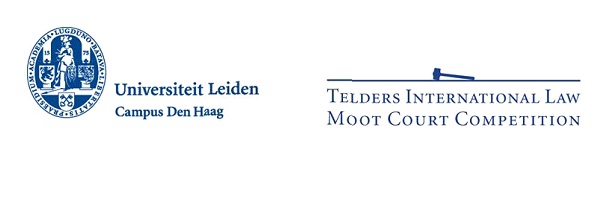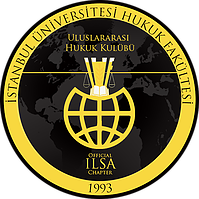
Translated by: Irmak Yetim
Edited by :Ali GÖÇMEN
- Telders International Law Moot Court Competition is annually held by Grotius Centre of Leiden University, in the city of the Netherlands, Lahey and is run by Telders Ogranization Office (TOO). In the year of 1977, when Telders started, only 4 universities participated, now it became a highly respected “moot court” competition in Europe with more than 40 universities participating.
- Grotius Centre publishes a hypothetical dispute between two hypothetical states on its web page. As a result of a chain of events evolved, those two hypothetical states bring the dispute to United Nation’s judiciary body International Court of Justice. The teams prepare defenses for both the claimant and the espondent considering the chain of events, international treaties that had been signed by both states (which’s information added at the end of the chain of events) and interests of the hypothetical states.
- Competition consists of two phases. At first phase, competing teams prepare petitions that include defences on behalf of responding state and arguments on behalf of claimant Those petitions are sent to TOO at the end of January. Leading international public law academics evaluate and give grades to petitions. At second phase, teams front the best instructors in their fields who behave as the judges of International Court of Justice, and defend their cases as lawyers of those hypothetical states.
- Only one team from a country (except from the Netherlands) can compete in Lahey. Nationally successful teams are entitled to go through international qualifications in Lahey.
In Istanbul University Faculty of Law, the process usually starts with a written English exam that evaluates students’ legal knowledge which is expected to be learnt from materials that are said in an announcement on spring-summer term for those students asking to join the teams. Students who have succeeded in the written exam are called up for an interview where their English proficiency and skills are evaluated .Top four students will be elected for that year’s Telders team. After creating a hypothetical case team, an academician from chair of international public law is assigned as team coach. They start working on foreign resources, books, articles, international treaties, conventions, declarations, and their annotations and international court precedents that includes that year’s hypothetical dispute concerning international public law.
- Telders is held at one of the Netherland’s leading universities, Leiden University’s Lahey campus. Traditionally its final session is held at Peace Palace. In every session, there are 3 judges representing the judges of the International Court of Justice and they are prominent academicians of international public law. Finalists have the honor of being evaluated by 3 judges themselves of International Court of Justice in the final session.
- In every session, two teams representing a claimant state and a respondent state encounter and each team has 40 minutes to present their arguments to the jury. Every delegate states the duration of their speech before presenting his/her argument, and do the defence in that time.
• During defences, judges constantly ask questions. Therefore , the students must know all the basis of law about the basics of international law and all the legal issues considering dispute. Besides the accuracy and the legal basis of the answers to the questions asked, each member of team is scored based on the process of structuring the arguments, the clarity and legal basis of those arguments, the ability of keeping the judges’ attention the arguments,having a good command of English, whether the set period is exceeded or not, the tone of the voice and gestures and mimics. In the end each team has a total score. Two teams getting the best points in this way are selected finalists.
- At the end of the final session, the actual judges of International Court of Justice determine the winning team.However, In Telders competition there is not just one award; the awards varies such as “the best claimant state lawsuit petition”, “the best respondent state plaint”, “the best claimant state verbal defence”, “the best respondent state verbal defence”, “the highest total score”, “the best debator”.
• These competitions have great impact on your identity as a lawyer and your social life. Besides having the advantage of being together with law faculty students from all over the world, you will have the chance to be a lawyer of a state in front of the reputable academics and challenging teams that have worked hard for months for the competition. Just like your opponents, having worked for months will improve your legal English; but more importantly it will teach you how to do a scientific research and writing an article and rewards you with a masters level of knowledge of the subjects that you have done research.

